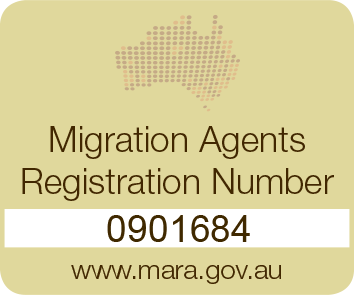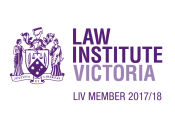-
What is an Australian Partner Visa?
An Australian Partner Visa allows a person who is not an Australian citizen or Australian Permanent Resident, but who has a partner who is an Australian citizen or Permanent Resident, to live and work in Australia, initially as a Temporary Resident, and ultimately as a Permanent Resident.
There are two types of Australian Partner Visas, an onshore Partner Visa (must be applied for in Australia – Subclass 820) and an offshore Partner Visa (must be applied for outside Australia – Subclass 309). Find out more here.
-
I have applied for a partner visa and I have just been told I have failed the medical examination. What happens now?
In our experience you have failed the health requirement because the treatment you require causes “undue cost” to the Australian government or the treatment you need will “prejudice access” to similar care for an Australian citizen or Australian permanent resident.
Fortunately, Australian Partner Visas contain a provision for a “Health Waiver”. This allows the health requirement to be waived (i.e. overlooked) if you can show “compelling and compassionate” circumstances exist, which affect an Australian citizen or Australian permanent resident to such an extent that the health requirement for the visa should be waived.
You should have received a form from the Department of Home Affairs (DHA) requesting details of how you intend to mitigate or reduce the costs of your medical care and evidence to support your claims. We strongly suggest that you also provide a written submission to the DHA with additional information explaining:
- why you believe your condition will not cause undue cost to Australia,
- why the treatment for your condition will not prevent an Australian Citizen or Australian Permanent Resident’s access to care for the same condition.
- if there is undue cost and/or prejudice of care, why you believe these factors should be overlooked.
- the ramifications for your partner (and children if you have any) if you are forced to leave Australia.
- your engagement with your community, any charitable or community service activities you participate in.
- any other matter you consider relevant.
If you require assistance with your response/submission and specific migration advice tailored to your medical condition, we suggest you book yourself a consultation with our Principal Lawyer, Maggie Taaffe (who is also a former Nurse Practitioner and Nursing Academic, with extensive experience drafting health waiver submissions).
Call us on +61 3 9573 5200 to book or book online by clicking the button below
Book a Consultation -
Why is an Australian Partner Visa so expensive?
Partner Visa fees have increased by over 400% in the last 5 years, and it currently costs over $7000 just to lodge the visa. According to an article by SBS News, the Productivity Commission of Australia has concluded there is no justification for the high cost of Partner Visas.
Applying for a Partner Visa does allow many people who would not otherwise be able to, to achieve Australian Permanent Residence, albeit very expensively.
Whilst engaging a Registered Migration Agent or Immigration Lawyer to assist you with your application process adds extra expense, at AHWC Immigration Law, we offer a no visa no fee service for Partner Visa applicants and we can assist you to arrange finance.
-
How much does an Australian Partner Visa Cost?
The Visa Application Charge (VAC is $7,715). There are additional charges for children or dependents.
-
I don’t live in Australia, can I get an Australian Partner Visa?
If you have an Australian Citizen Partner and can demonstrate a genuine spouse or de facto relationship, you will be able to apply for a Subclass 309 Partner Visa. Alternatively if you are engaged to be married to an Australia Citizen or Permanent Resident, you may apply for a Prospective Marriage Visa, and travel to Australia to get married once it is granted. Then you can apply for an Onshore Partner Visa (Subclass 820).
A final option is to apply for a Visitor Visa to Australia, and once you are here, you can apply for the Subclass 820 Visa with your Australian Citizen or Australian Permanent Resident Partner.
-
I have a Temporary Partner Visa. How do I become an Australian Citizen?
You will first need to have your Permanent Partner visa granted. Once this occurs you will need to meet the current citizenship requirements, which dictate that you must have been lawfully resident in Australia for four years, and one of those years must have been as a Permanent resident.
-
I am in Australia on a Visitor Visa. Can I apply for a partner visa?
Yes, you can apply for a Subclass 820 Onshore Partner Visa, provide you and your sponsor meet all the relevant requirements. Find out more here
-
I am separated but not yet divorced from my husband, can I apply for a partner visa with my new partner?
Yes you can, provided you have evidence that you are in a de facto relationship with your new partner, and you otherwise meet the partner visa requirements. In most cases your partner visa application will not be granted though until you provide the Department with proof of your divorce. The DHA may grant a Partner Visa to a person whose marriage has not been legally terminated, where the visa applicant provides evidence that the divorce/annulment proceedings have commenced, and are likely to take a lengthy period of time to conclude.
-
I am in Australia, but my children are in my home country living with their grandparents. Can I add them to my partner visa application when I lodge it in Australia?
Unfortunately, you can't do that. Once your Partner Visa is granted though, you will be able to apply for Subclass 445 Dependent Child Visas for your children. If you have the correct consents or family court orders in place, they will be able to migrate to Australia and be added to your Permanent Partner Visa application (Subclass 801).
-
I have lodged a partner visa application, but have suffered domestic violence at the hands of my Australian Partner and have left him. I took out an Intervention Order against him. He has told Immigration that we’re not together any more. What will happen to my visa application?
If your husband has informed the Department of Home Affairs that your relationship has ended, you will receive a letter from them asking you to comment on his report. At this stage (and even prior to receiving the letter), you can report to the DHA stating you have experienced domestic violence. Should you make such an allegation, the DHA will request specific evidence from you to support your claim. If the DHA accepts that you have suffered Domestic Violence, your visa will be granted on that basis. If you find yourself in this situation, we urge you to seek assistance with your domestic situation and professional assistance for your visa.
Have a look at one of our recent Blog articles for more information on this topic.
-
I want to lodge a partner visa, but I haven’t lived with my partner for 12 months yet. My visa will expire next month. What can I do?
If you live in Victoria, South Australia, Tasmania, Queensland and the ACT, you can register your relationship (at Births, Deaths and Marriages). Once you do this, the 12 month requirement fall away, but you must demonstrate that you have a genuine relationship moving forwards.
Even if the registration is not approved until after you have lodged the Partner Visa application, it will still eliminate the need to provide 12 evidence of living together.
We advise that if you intend to register your relationship, you seek independent legal advice with respect to the potential property and other ramifications of registering a relationship.
-
Because the Partner Visa application fees are so expensive, I’m thinking of doing my own Partner Visa application. What would your advice be?
We would not advise you to do this. Partner Visa applications are very expensive and if you do not prepare it properly, or provide all the relevant information that is required, your application will be refused. If this happens will you lose in excess of $7,7150, and if you lodged your visa in Australia, you will be barred from lodging another visa onshore.
At AHWC, we offer a No Visa No Fee Guarantee for Partner Visa applications. Use us and you'll know your application is prepared properly, it's accompanied by written submissions and the right evidence - and we liaise with the Department of Home Affairs on your behalf throughout the lengthy application processing time.
Words cannot express how grateful and happy we are for getting our partner visa granted in only 7 months. This was the best news we could hope for and so life changing in all aspects. All this thanks to the Team at AHWC and especially Patrick who has been of tremendous help from start to finish. Patrick has been so professional during the whole process. It all felt quite confusing and very complicated for us to handle alone but he made it so easy and stress free. Everything was clear and our application was lodged decision ready. Never would we have thought going into this that we would get a visa so quickly ! The service provided is definitely worth each cent. Thank you so much. Eric & Caroline H | Google Review -
We really can’t afford the fees for the partner visa and the professional fees .Do you have any suggestions about how we can get the money together?
We can assist you to obtain a loan for the professional and visa application fees, if you engage our services. Please book a consultation, and we will assess your visa options.
-
I lodged a partner visa application in Australia. My wife, who was an Australian Permanent Resident sponsored me. Unfortunately, she died several weeks ago. What will happen now?
On behalf of our team, please accept our sincere condolences for your loss.
In circumstances such as these, Partner Visa applications can continue to be processed. If you provide your wife’s death certificate to the Department of Home Affairs (DHA), with a letter of explanation, your partner visa application will be granted, if DHA accepts that had your wife not died, you would have remained in your spousal relationship.
-
I have just had a baby and my husband has left me. What will happen to my Partner Visa application?
If your husband is also the father of your child, your partner visa application will be granted, as there are provisions in the Migration Regulations which allow a Partner Visa application to be granted in such circumstances, provided the father sponsored you for the visa.
-
I lodged a partner visa with my partner and she has just left me. She also told me she has withdrawn her sponsorship and told Immigration. What will happen to my visa application?
In due course (and it’s hard to estimate how long) the Department of Home Affairs (DHA) will send you a letter, stating that they have received adverse information that your relationship has ceased. You will be given 28 days to respond to the request for information about your relationship, and if yourself and your partner are no longer together, you may either withdraw the application, or wait until the application is refused.
Have a look at one of our recent Blog articles for further information.
-
My Australian Partner is threatening to have my Partner visa cancelled, can he do this?
The simple answer is no he can’t.
If you’re in Australia on a Temporary Partner Visa (either the Subclass 820 or the Subclass 309), the Department will contact you if your partner has informed them that your relationship is not ongoing. By letter the Department will ask you to respond to them and let them know whether the relationship is intact or has broken up. If the relationship is no longer ongoing, you will not be able to progress to either the Subclass 801, or Subclass 100 Permanent Partner Visa, as the department will ultimately refuse the Permanent Partner Visa, unless you inform them that you wish to withdraw the application for the Permanent Partner Visa.
If however you have already progressed to the Permanent Partner Visa, you are an Australian Permanent Resident, and even if your relationship is no longer ongoing, your visa will not be cancelled.
There are few grounds for cancellation of Partner Visas. They include however having a substantial criminal record, committing a serious crime whilst the holder of the visa, or being granted the visa as a result of fraudulent evidence being submitted with the application.
For more information, read our blog post on this topic here.
-
I had a student visa and then applied for a Partner Visa. Immigration has just cancelled my student visa. Does that mean I am now on the Bridging Visa that was granted when I lodged my Partner visa?
Unfortunately not. The bridging visa that was issued as a result of you lodging the Partner Visa would have ceased at the time your student visa was cancelled. You are currently unlawful, and you should contact the Department of Home Affairs as soon as possible to obtain a Bridging Visa E, either by presenting at one of the DHA offices, or by logging onto your Immiaccount and lodging a Bridging Visa E application that way.
As Bridging Visa E’s are normally issued with an “no work” condition, you are advised to request work rights at the time of your initial application for the Bridging Visa E.
Should you need assistance with your application or an application for work rights, please contact our team without delay on (03) 9573 5200, or book a consultation online as soon as possible.
-
I’ve met this gorgeous Australian guy online and want to lodge a partner visa with him. Where do I start?
Before you can lodge a Partner Visa application, you must have the required evidence to prove that you have a de facto or spouse or relationship AND you must have met your partner in person. If you have not met your partner in person (and have the evidence to prove you have met), any Partner Visa application will be refused.
-
I’ve heard that registering a relationship takes away the need for twelve months evidence of a relationship. How do I do that?
Relationships may be registered at the Births Death and Marriages registry in participating states and territories. One member of the couple must be able to prove residence in the state or territory (but does not need to be a Permanent Resident). There is at least a 28 day period before the relationship can be registered, and we recommend getting independent legal advice prior to registering a relationship, to fully understand the property and other consequences of relationship registration. Participating states are Victoria, Queensland, Tasmania, South Australia, New South Wales, and the ACT is currently the only territory.
-
Does my relationship need to be registered when I apply for the Partner Visa?
No, it can be registered any time before the visa decision.
-
I only had a bridging visa when I applied for my Subclass 820 Partner Visa in Australia. Now I’ve been told I don’t meet something called a “Schedule 3” requirement. What does this mean?
Schedule 3 of the Migration Regulations basically states that if you did not hold a substantive visa (ie a substantive visa is generally anything other than a bridging visa) at the time of application for the Partner Visa, the Partner Visa will not be granted unless:
– you can show there are compelling and compassionate circumstances that affect an Australian citizen or Australian permanent resident, if your visa is not granted.
Schedule 3 applies where you held a Bridging Visa at the time of application, or you were unlawful at the time of application.
Getting over Schedule 3 is very difficult, and we recommend you seek professional assistance to prepare a relevant submission addressing the Schedule 3 requirements on your behalf.
-
My sponsor doesn’t have a passport. Can she still sponsor me?
Yes, provided she has evidence she is an Australian citizen or Australian Permanent Resident.
-
I have applied for a Subclass 820 Partner Visa – why does my medical form say I have applied for a Subclass 801?
When you apply for a Subclass 820 Onshore Partner Visa, you have also applied for the Subclass 801 Permanent Partner Visa. It’s a combined application.
-
Is the Subclass 801 automatically granted after a certain period of time?
Generally you will need to provide further evidence to the Department of Home Affairs 2 years after the date of your Subclass 820 Onshore Partner Visa application , or your Subclass 309 Offshore Partner Visa application.
Sometimes however, where a couple can demonstrate a long term relationship (i.e. more than 3 years), or there is a child of the relationship (and the relationship is at least two years in length), the DHA will automatically grant stage 2 permanent partner visas immediately after granting the first stage visa. By immediate, I mean about 5 minutes later.
-
Am I entitled to Medicare after I have applied for a Partner visa in Australia?
Happily yes you are. All you need to do is take your letter of acknowledgement that you have lodged the visa application from the Department of Home Affairs to your nearest Medicare Office, and they should issue you with a Medicare card.
-
Can I work and study whilst waiting for my Partner Visa to be processed?
Provided you held a substantive visa (i.e. not a bridging visa) when you lodged your Partner Visa Application, the bridging visa that was issued to you should have no conditions, which means that you can work and study. If however you are unlawful when you applied for your Partner Visa, had a visa refused or held a Bridging Visa, it is unlikely that you will have work rights, but you will be able to study. If you need to work because you do not have sufficient funds to support yourself, you can make an application to the Department of Home Affairs to have the conditions removed from your Bridging Visa.
-
I have Permanent Residence by way of a Subclass 866 Protection Visa and I want to sponsor my long term partner. Is it possible to sponsor her and lodge a Subclass 820 Onshore Partner Visa?
You may sponsor your partner however the DHA will significantly prolong processing of a Partner Visa application where the sponsor is a Subclass 866 Visa holder. If your partner is a temporary protection visa holder, they will be unable to lodge a valid application for a Partner Visa, unless the Minister lifts a statutory bar which is automatically imposed on temporary protection visa holders and temporary protection visa applicants. It is highly unlikely the bar will be lifted.
-
I’ve got a Safe Have Enterprise Visa (SHEV) and my Australian Partner wants to sponsor me for a Partner Visa. Is it possible for me to lodge a partner visa when I hold a SHEV?
No it is not. Your SHEV is subject to a section of the Migration Act which bars you from applying for a Partner Visa, unless the Minister for Immigration lifts the bar to allow you to apply. Currently, the Minister is not waiving the bar to allow such applications. Once however, you have fulfilled your obligations under the SHEV, with respect to living/working/studying in a regional area, you will be able to apply for a Partner Visa, as the Minister lifts the bar once you have met these obligations.
-
My Partner Visa application which I lodged onshore (it’s a Subclass 820 Visa) has been refused. What can I do now?
You may appeal the decision to the Administrative Appeals Tribunal (AAT). You must lodge the review application with the Tribunal within 21 days of the date on the refusal letter. There is no provision for late lodgement. I strongly suggest you seek out a Registered Migration Agent who is experienced in running matters at the AAT.
If you need further advice, please book a consultation with us, and we'll have a look at the refusal decision and advise you accordingly.
-
Yikes, I've been told I need to do a Partner Visa interview. What can I expect?
We have recently written an extensive Blog Post about this topic! You can find it here.
- Partner Visas
- Applying In Australia? Subclass 820/801 Onshore Partner Visa
- Outside Australia? Subclass 309/100 Offshore Partner Visa
- Prospective Marriage (Fiancé) Visa – Subclass 300
- Have A New Zealand Citizen Partner?
- Subclass 482 TSS & 457 Visas – Adding Your Partner
- Student Visa Holders – Adding Your Partner
- Partner Visa Relationship Breakdown
- Employer Nomination/Sponsorship
- Subclass 186 Employer Nomination Scheme (ENS) Visa
- Temporary Skills Shortage (TSS) Visa | Subclass 482
- Subclass 407 Training Visa
- Subclass 494 Skilled Employer Sponsored Regional (Provisional) Visa
- Subclass 191 Permanent Residence (Skilled Regional) Visa
- Temporary Work (Short Stay Specialist) Subclass 400 Visas
- Employer Services
- Business/Investment Visas
- Skilled Migration
- Other Visa Services
- Our Visa Guarantee
- Resources
- COVID-19 Immigration Resource Centre
- Need Help With Visa Application Costs?
- Occupation Lists
- Priority Migration Skilled Occupation List
- Medium & Long-Term Strategic Skills List – March 2019
- Short-term Strategic Skills List – March 2019.
- Subclass 494 Visa Occupation List
- Subclass 491 (State Nominated Stream) Occupation List
- Subclass 491 (Family Sponsored Stream) Occupation List
- Combined List of Eligible Occupation
- Designated Regional Areas & Postcode List
- FAQ
- Helpful Advice
- Moving To Australia Guide
- Home
- Partner Visas
- Applying In Australia? Subclass 820/801 Onshore Partner Visa
- Outside Australia? Subclass 309/100 Offshore Partner Visa
- Prospective Marriage (Fiancé) Visa – Subclass 300
- Have A New Zealand Citizen Partner?
- Subclass 482 TSS & 457 Visas – Adding Your Partner
- Student Visa Holders – Adding Your Partner
- Partner Visa Relationship Breakdown
- Employer Normination Visas
- Subclass 186 Employer Nomination Scheme (ENS) Visa
- Temporary Skills Shortage (TSS) Visa | Subclass 482
- Subclass 407 Training Visa
- Subclass 494 Skilled Employer Sponsored Regional (Provisional) Visa
- Subclass 191 Permanent Residence (Skilled Regional) Visa
- Temporary Work (Short Stay Specialist) Subclass 400 Visas
- Employers
- Business Visas
- Skilled Migration
- Other Visa Services
- Other Visa Services
- Resources
- Covid-19 Immigration Resource Centre
- Need Help With Visa Application Costs?
- FAQ
- Helpful Advice
- Occupation Lists
- Medium & Long-Term Strategic Skills List – March 2019
- Short-term Strategic Skills List – March 2019
- Subclass 494 Visa Occupation List
- Subclass 491 (State Nominated Stream) Occupation List
- Subclass 491 (Family Sponsored Stream) Occupation List
- Combined List of Eligible Occupation
- Designated Regional Areas & Postcode List
- About Us
- Blog
- Testimonials
- Direct Contact Details

 Points Test
Points Test
 Book Now
Book Now 

